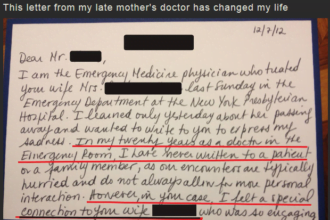Is innovation a necessity or a luxury that our financially strained health care system can no longer afford?
Is innovation a necessity or a luxury that our financially strained health care system can no longer afford?
In February 2012, panelists representing a range of organizations debated the role of innovation at the 9th Annual Health Care Conference, hosted by the Healthcare Club of the Harvard Business School. The consensus among panelists was that innovation will remain an essential element of our health care system but only in the context of the economic and clinical value it brings to patient care. Key insights are summarized here.
Innovating in the context of rising costs
Keynote presentation by Karen Ignagni, CEO of America’s Health Insurance Plans
- Why costs matter. Ignagni quoted a December 2011 report by McKinsey which found, adjusting for inflation and population growth, that health spending has grown 5 times faster than the gross domestic product since 1960. Health care costs, she continued, are the primary driver of our national debt. She questioned how we sustain this growth yet meet the needs of patients.
- Shift the conversation to value. Ignagni suggested we must evaluate whether technological innovation is being used appropriately. She cited a 2006 study in Health Affairs which considered how to integrate value and technology in making treatment decisions.
- Re-engineer payment models. If prospective payment models like accountable care organizations are to succeed, she noted that hospitals, health plans and physicians must collaborate in goal setting and share responsibility for managing costs.
- Re-orient benefit plans. Ignagni acknowledged that benefit plans need to focus more on prevention and improving care coordination, especially for patients with co-morbidities.
Enabling the development of new treatment paradigms
Discussion moderated by Stan Lapidus, SynapDx with panelists Rick Schatzberg, Generation Health; Wei-Lio Shao, Eli Lilly; Katie Szyman, Medtronic
- Balance regulatory rigor with innovation. While regulation is important to ensure patient safety it can also slow innovation. Szyman noted that the premarket approval process for Medtronic has increased from 3 to 7 years and costs have increased from $10-20 million to $200 million.
- Demonstrate economic value earlier. In response to concerns about the cost of new treatments, Shao noted that there has been a movement to generate health outcomes and economic data in parallel with the clinical development process.
- Social media can influence regulatory approval. Szyman recounted the impact of patients and health care organizations on the approval of Medtronic’s Veo insulin pump. The Veo pump, also known as an artificial pancreas, represents an improvement in management of Type1 diabetics because it automatically adjusts insulin levels, helping them avoid hypoglycemia. Despite its use in 70,000 patients worldwide, the FDA had been slow to issue guidance on the clinical approval process for the artificial pancreas. In response, the Juvenile Diabetes Research Foundation gathered 100,000 signatures online, motivating the FDA to issue draft guidance in December 2011.
Bringing consumer centricity to healthcare
Discussion moderated by Bob Higgins, Highland Capital Partners with panelists Amba rBhattacharyya, Bessemer Venture Partners; Jordan Goldberg, stickK; Michael Laskoff, AbilTo
- Wellness is a behavior problem, not an information problem. Panelists noted that we need to use technology in a way that gives individuals the feedback they need to accomplish behavioral change. Novel new products such as stickK or AbilTo help people remain engaged and compliant.
- Employers are target customers for wellness programs. Both StickK and AbilTo have pivoted their strategies to focus on businesses versus individuals. However Goldberg and Laskoff cautioned that those marketing wellness programs to businesses need to demonstrate why changing behavior is important and how their programs will save money. For example, since post cardiac-event patients may be vulnerable to experiencing mental health issues that can affect their recovery, AbilTo contracted with Aetna to proactively reach out to plan members who had suffered these events.
Redefining the role of venture capital
Discussion moderated by Terry McGuire, Polaris Ventures with panelists Alexis Borisy,Third Rock Ventures; Chip Clark, Genocea BioSciences; David Schenkein, Agios.
- Consider unconventional funding models. The panel noted that less venture capital is being invested in early stage life science companies because returns have been challenging. As a result, firms like Genocea are turning to nontraditional sources of funding such as the Gates Foundation. Schenkein observed that another alternative source of funding is to consider a corporate partnership early in the development process; however he acknowledged that this strategy can mean a loss of management control.
- Opportunities remain. According to Borisy the contraction in venture capital has focused venture investment on transformative ideas versus lower risk, less novel ones.
- Customers are not looking for marginal changes. As public payers assume greater financial responsibility, Borisy noted that it’s incumbent on firms to create products that produce significant improvements in efficacy or cost effectiveness.
The future is affordable innovation
Despite the pressures to keep costs in check, panelists were generally positive about the role of innovation in health care, concurring that advances in technology will help firms accelerate product development, demonstrate value and improve decision making by health care providers and patients.









